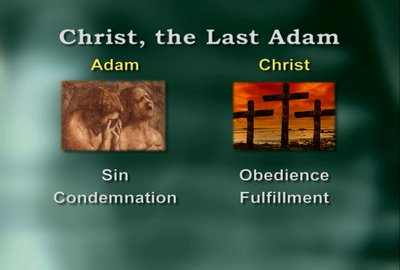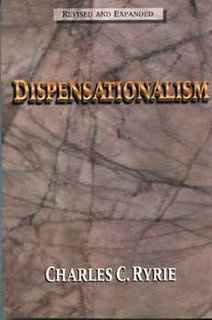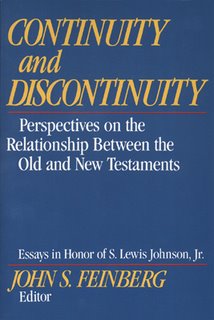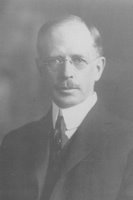They Have Been With Jesus - Matthew Henry
 Context: Peter and John are being questioned by the Sanhedrin for preaching Christ. We find the following verse right after Peter answers them with such amazing clarity and boldness that the 70 did not know how to respond.
Context: Peter and John are being questioned by the Sanhedrin for preaching Christ. We find the following verse right after Peter answers them with such amazing clarity and boldness that the 70 did not know how to respond.Now when they saw the boldness of Peter and John, and perceived that they were unlearned and ignorant men, they marvelled; and they took knowledge of them, that they had been with Jesus. Act 4:13
They could not, with all their pomp and power, face down Peter and John. This was a miracle not inferior to the cure of the lame man, considering both what cruel bloody enemies these priests had been to the name of Christ (enough to make any one tremble that appeared for him), and considering what cowardly faint-hearted advocates those disciples had lately been for him, Peter particularly, who denied him for fear of a silly maid; yet now they see the boldness of Peter and John, Act_4:13. Probably there was something extraordinary and very surprising in their looks; they appeared not only undaunted by the rulers, but daring and daunting to them; they had something majestic in their foreheads, sparkling in their eyes, and commanding, if not terrifying, in their voice. They set their faces like a flint, as the prophet, Isa_50:7; Eze_3:9. The courage of Christ's faithful confessors has often been the confusion of their cruel persecutors. Now, (1.) We are here told what increased their wonder: They perceived that they were unlearned and ignorant men. They enquired either of the apostles or themselves or of others, and found that they were of mean extraction, born in Galilee, that they were bred fishermen, and had no learned education, had never been at any university, were not brought up at the feet of any of the rabbin, had never been conversant in courts, camps, or colleges; nay, perhaps, talk to them at this time upon any point in natural philosophy, mathematics, or politics, and you will find they know nothing of the matter; and yet speak to them of the Messiah and his kingdom, and they speak with so much clearness, evidence, and assurance, so pertinently and so fluently, and are so ready in the scriptures of the Old Testament relating to it, that the most learned judge upon the bench is not able to answer them, nor to enter the lists with them. They were ignorant men - idiōtai, private men, men that had not any public character nor employment; and therefore they wondered they should have such high pretensions. They were idiots (so the word signifies): they looked upon them with as much contempt as if they had been mere naturals, and expected no more from them, which made them wonder to see what freedom they took. (2.) We are told what made their wonder in a great measure to cease: they took knowledge of them that they had been with Jesus; they, themselves, it is probable, had seen them with him in the temple, and now recollected that they had seen them; or some of their servants or those about them informed them of it, for they would not be thought themselves to have taken notice of such inferior people. But when they understood that they had been with Jesus, had been conversant with him, attendant on him, and trained up under him, they knew what to impute their boldness to; nay, their boldness in divine things was enough to show with whom they had had their education. Note, Those that have been with Jesus, in converse and communion with him, have been attending on his word, praying in his name, and celebrating the memorials of his death and resurrection, should conduct themselves, in every thing, so that those who converse with them may take knowledge of them that they have been with Jesus; and this makes them so holy, and heavenly, and spiritual, and cheerful; this has raised them so much above this world, and filled them with another. One may know that they have been in the mount by the shining of their faces.
- Matthew Henry; Commentary on Acts-
Be sure to be with Jesus today!
Doug


 For those of you in the Southern California area, we are hosting a great event tomorrow night, Thursday, April 27. Visit the
For those of you in the Southern California area, we are hosting a great event tomorrow night, Thursday, April 27. Visit the 
 Bobby Grow
Bobby Grow

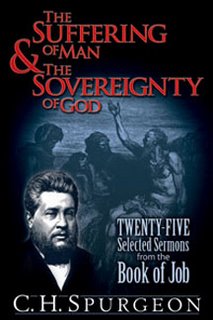
 I am not a major critic of modern worship, in fact I enjoy a lot of it, but there is a portion of it where the lyrics seem to be more focused on the person doing the worshipping than on Christ. For an example of this, click
I am not a major critic of modern worship, in fact I enjoy a lot of it, but there is a portion of it where the lyrics seem to be more focused on the person doing the worshipping than on Christ. For an example of this, click 




 The bonds of death could not hold our Lord Jesus. This has been proven by His resurrection. Because of this, there are many truths about Christ that have been proven and show us that it was never possible for Him to be held by the bonds of death. Here are four of those truths.
The bonds of death could not hold our Lord Jesus. This has been proven by His resurrection. Because of this, there are many truths about Christ that have been proven and show us that it was never possible for Him to be held by the bonds of death. Here are four of those truths.